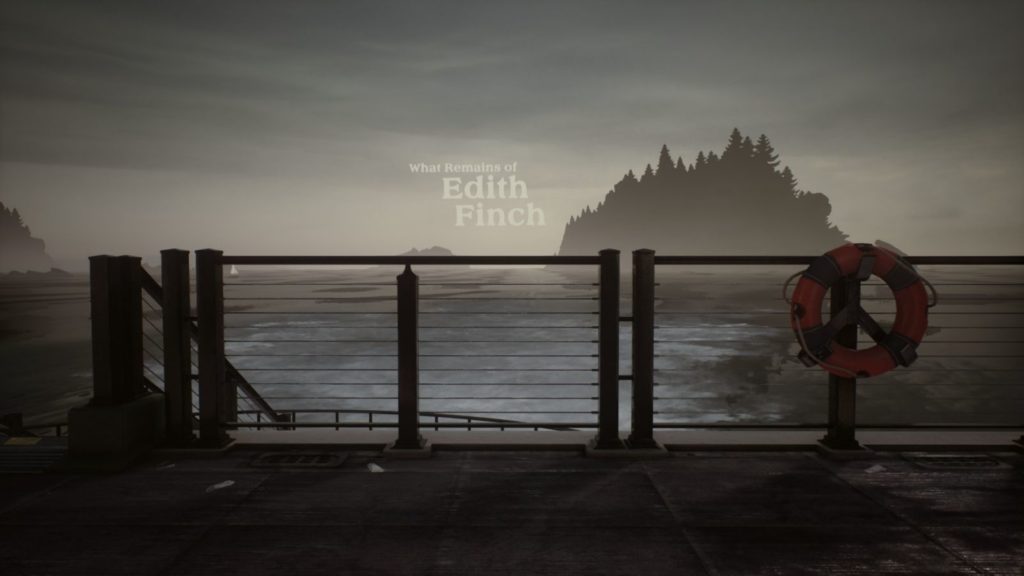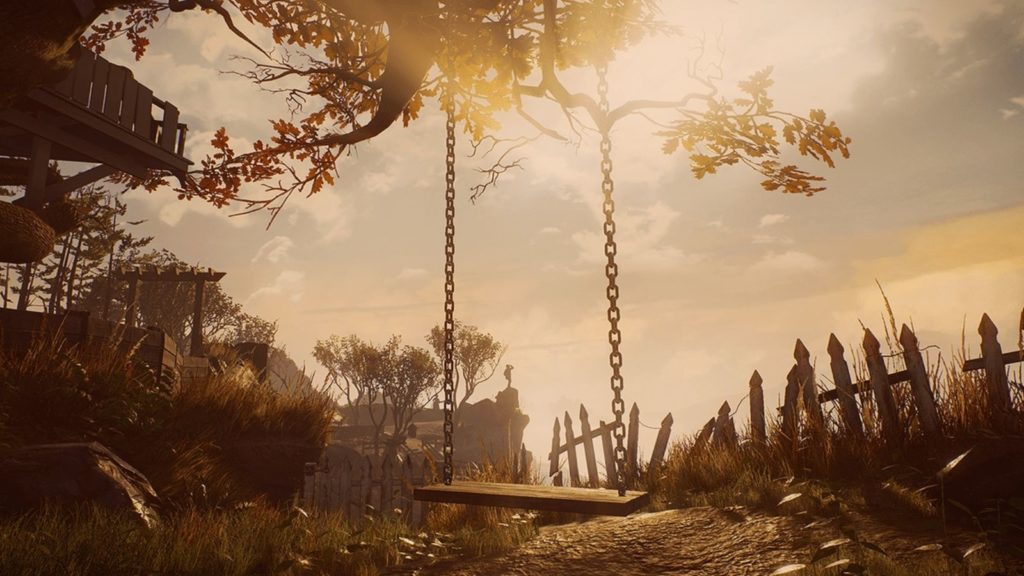What Remains After ‘Edith Finch’ – by Harry Stainer
Posted: 13 Jan 2022After my Grandad’s funeral I went into his old bedroom and as I looked around the room, I spotted many of his belongings – his fake Rolex watches, his books and old fishing gear, a hat he always used to wear on holiday.
For a brief moment I am brought out of this sobering day and into fond memories of him, and the stories his friends told me of him as a younger man – only to be snapped out of it a second later. Looking at these objects it reminded me of playing ‘What Remains of Edith Finch’ a few months earlier. It dawned on me how much the game illustrated a profound understanding of the grieving process and helped articulate all of the thoughts and feelings that come along with such a traumatic life event.
Death is something that those who play video games are incredibly used to; if you’re Nathan Drake and you miss a jump ahead of you, the punishment is the loss of a character’s life, only for you to succeed the same jump a few moments later after your checkpoint has reloaded. It’s a constant threat in most of the games that we play, but it rarely holds any true consequences. However, in ‘Edith Finch’ that is not the case; you can’t die in Edith Finch, but its story asks players to think about the messy nature of death and how grief has a habit of staying with us long after someone has passed.

One of the central plot points of the game is how the Finch family believed that their family were cursed – that all the losses in their family were caused by something that was out of their control and this was the reason they all met their demise. As the plot unfolds and you go through each room in this house, discovering how each Finch came to pass, it dawned on me that this ‘curse’ wasn’t just literal. For me, I always interpreted this curse as the collective grief that hung over the Finch family – these losses are not something that they can just be free of and they have stayed with long after the have tried to move on and, in Ediths case – leave the house. This curse illustrates that there are no beginnings and no endpoints to loss and more importantly, shows how a loss can completely consume you and feel like a curse when you can’t find a way to move forward or come to peace with it.
As you go around the house Edith will comment on objects and parts of the house that bring up memories for her. Anyone who has been in the home of someone they have lost will understand the melancholy mood swings when seeing their handwriting on a note or an item that they used to wear everyday – it showcases how objects can tie us to moments and the people associated with them and although this can sometimes be hard – it also keeps a part of them with us.

However, despite its melancholic nature there is a lot of salvation in Edith Finch and the way it confronts the messy nature of our relationships. Loss isn’t ever neat; the whole reason we are returning to the house in this game is because of how unresolved our protagonist’s feelings are with all the ones that she has lost. Trying to understand how you feel about loss can take time and Edith Finch often feels like a story about that very theme. In the game’s final moments Edith states the line:
‘If we lived forever, maybe we’d have time to understand things. But as it is, I think the best we can do is try to open our eyes, and appreciate how strange and brief all of this is’.
This line offers us some kind of acceptance from Edith, an acknowledgment that the grief doesn’t go away – it’ll always be a part of her, and she won’t always be able to understand the messiness that comes with it. As we grieve, we grow around loss and finally begin to appreciate other things in life again. It’s a bittersweet way to end a game, but it rings true to all those who have been through this experience.
I found Edith Finch a hard game to find conclusions from in my initial playthrough – it leaves you to pick up the pieces and form some sort of opinion of the events that have happened. In the time after my second playthrough of ‘What Remains of Edith Finch’ the conclusions I have taken from it is that the stories, objects and memories we have about our loved ones tie us to them. We can find comfort and understanding from them, knowing that these things can make us cherish the ones we had, and within the messiness find peace.

There is no timeline to stop grieving and if you are struggling, there are bereavement counselling options available. Reaching out for support is a very positive step to help overcome the distress you might be feeling. At a Loss is a useful resource for helping people who have had a bereavement find the support they need.

Marketing and Operations for Grads In Games, freelance writer, book person on Instagram & occasional scriptwriter
